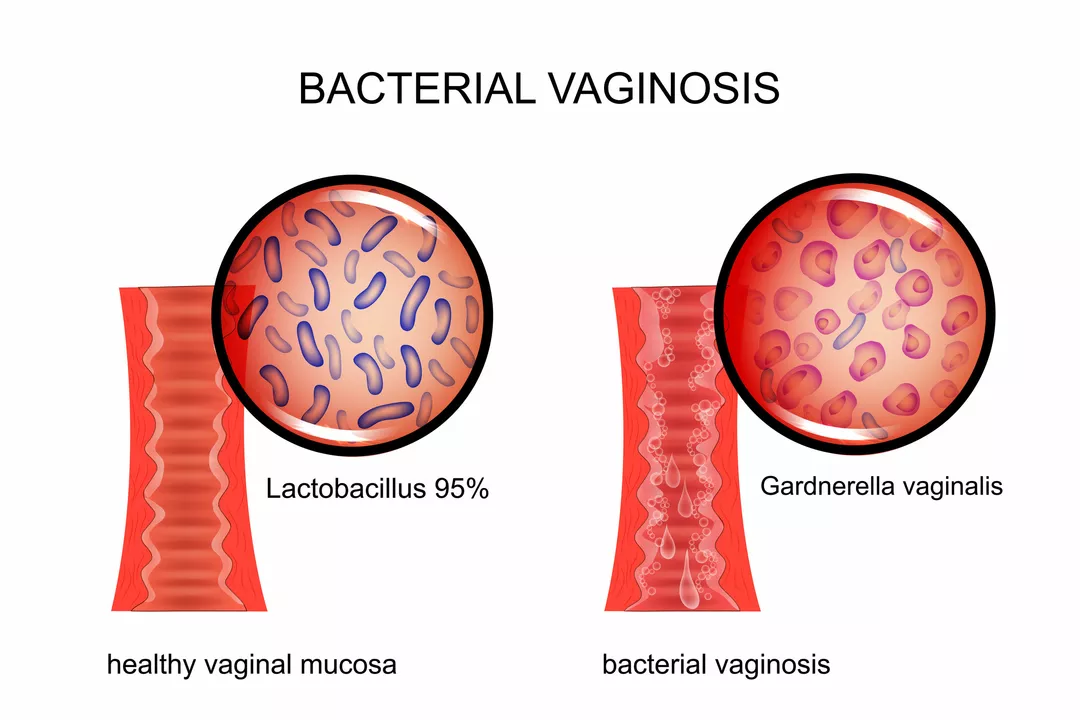How to Prevent Bacterial Vaginosis: Tips for Maintaining a Healthy Vagina

Introduction: The Importance of Vaginal Health
As a woman, maintaining a healthy vagina is essential for our overall well-being. Bacterial vaginosis (BV) is a common condition that many women experience at least once in their lives. It is caused by an imbalance of the naturally occurring bacteria in the vagina. Although it may be uncomfortable and frustrating, there are steps you can take to prevent BV and maintain a healthy vaginal environment. In this article, I will share with you nine tips that will help you keep your vagina healthy and prevent bacterial vaginosis.
Understanding Bacterial Vaginosis: Causes and Symptoms
Before diving into prevention methods, it's crucial to understand what bacterial vaginosis is and its common symptoms. BV occurs when there is an imbalance of "good" and "bad" bacteria in the vagina. This can lead to various symptoms such as itching, burning, a fishy odor, and abnormal discharge. Many factors can contribute to this imbalance, including douching, using scented products, unprotected sex, and even stress. Knowing what causes bacterial vaginosis and its symptoms can help you take the necessary steps to prevent it.
Maintaining a Proper Vaginal pH Balance
One of the keys to preventing bacterial vaginosis is maintaining a proper vaginal pH balance. The vagina should have a pH level of around 3.8 to 4.5, which is slightly acidic. This acidic environment helps maintain the balance of good and bad bacteria and prevents infections. To maintain a healthy pH balance, avoid using harsh soaps or cleansers, use unscented, natural products, and consider using over-the-counter pH-balancing products if necessary.
Avoiding Douching and Scented Products
Douching and using scented products can disrupt the natural balance of bacteria in the vagina, leading to bacterial vaginosis. Douching involves washing the vagina with water or a cleansing agent, which can strip away the good bacteria and alter the pH balance. Similarly, scented products like tampons, pads, and feminine sprays can also cause irritation and disrupt the vaginal environment. Instead, use warm water and mild, unscented soap to clean the external area of the vagina, and avoid using any fragranced products.
Wearing Breathable, Cotton Underwear
The type of underwear you wear can also influence your vaginal health. Synthetic materials like polyester and nylon can trap moisture and heat, creating an environment where bad bacteria can thrive. To prevent bacterial vaginosis, opt for breathable, cotton underwear that allows for proper airflow and wicks moisture away from the body. Also, consider changing your underwear more frequently if you tend to sweat a lot or after exercising.
Practicing Safe Sex
Unprotected sex can increase the risk of bacterial vaginosis by introducing new bacteria into the vagina. To prevent BV, always use protection like condoms or dental dams during sex. Additionally, be sure to clean sex toys properly before and after use, and consider using a barrier method like a condom when using shared sex toys. Lastly, urinate after sex to help flush out any bacteria that may have been introduced during intercourse.
Managing Stress
Stress can have a significant impact on our overall health, including our vaginal health. High stress levels can weaken the immune system, making it harder for your body to fight off infections like bacterial vaginosis. Incorporate stress management techniques into your daily routine, such as exercise, meditation, or journaling, to help maintain a healthy vaginal environment.
Probiotics for Vaginal Health
Probiotics are beneficial bacteria that can help maintain a healthy balance of good and bad bacteria in the body. Consuming probiotic-rich foods like yogurt, kefir, and kimchi or taking probiotic supplements can help prevent bacterial vaginosis by promoting a healthy vaginal environment. Look for probiotics that contain Lactobacillus strains, as these are particularly beneficial for vaginal health.
Regular Gynecological Checkups
Regular checkups with a gynecologist can help you stay on top of your vaginal health and catch any potential issues early on. During these visits, your healthcare provider can assess your overall health, answer any questions or concerns you may have, and perform necessary screenings. In addition, they can provide personalized recommendations for preventing bacterial vaginosis based on your specific needs and health history.
In conclusion, maintaining a healthy vagina and preventing bacterial vaginosis involves being mindful of the products you use, practicing safe sex, managing stress, and seeking regular medical care. By incorporating these tips into your daily routine, you can minimize your risk of developing BV and enjoy optimal vaginal health.

Naga Raju
May 29, 2023 AT 11:28Dan Gut
May 31, 2023 AT 07:22Jordan Corry
May 31, 2023 AT 15:13Mohamed Aseem
May 31, 2023 AT 23:38Steve Dugas
June 1, 2023 AT 05:07Paul Avratin
June 2, 2023 AT 23:17Brandi Busse
June 3, 2023 AT 16:44